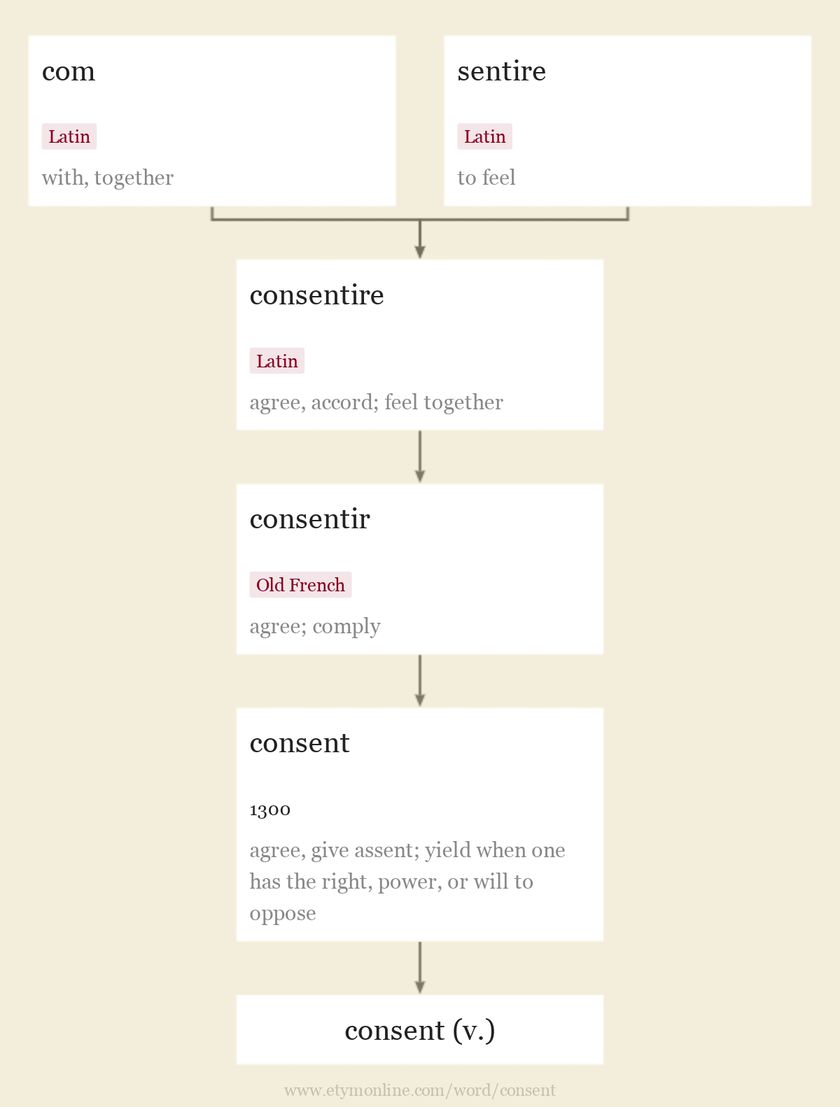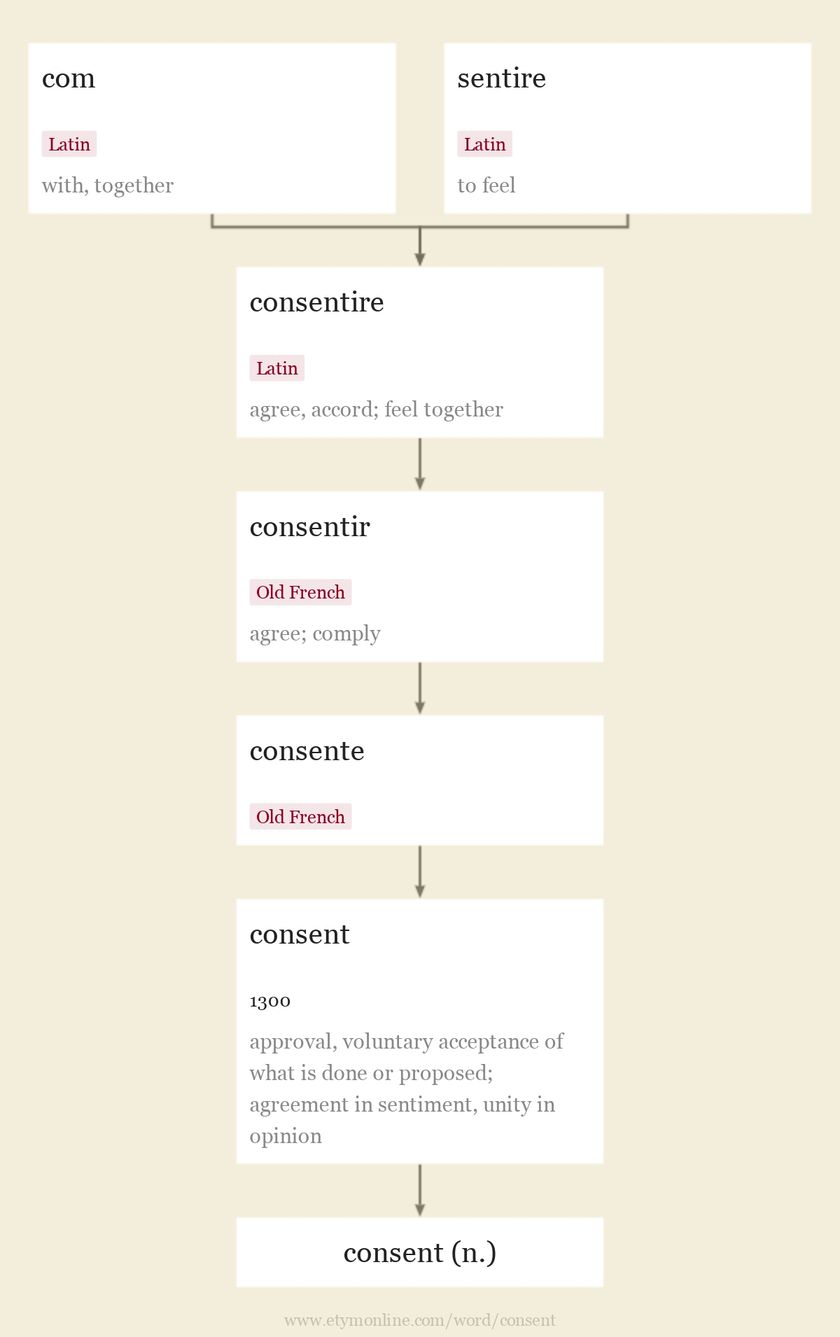| 词源 |
consent v.c. 1300, "agree, give assent; yield when one has the right, power, or will to oppose," from Old French consentir "agree; comply" (12c.) and directly from Latin consentire "agree, accord," literally "feel together," from assimilated form of com "with, together" (see con-) + sentire "to feel" (see sense (n.)). "Feeling together," hence, "agreeing, giving permission," a sense evolution that apparently took place in French before the word reached English. Related: Consented; consenting. consent n. c. 1300, "approval, voluntary acceptance of what is done or proposed," also "agreement in sentiment, unity in opinion," from Old French consente, from consentir "agree; comply," from Latin consentire "agree, accord," literally "feel together," from assimilated form of com "with, together" (see con-) + sentire"to feel" (see sense (n.) ). In Middle English sometimes in a negative sense, "yielding (to sinful desire); connivance." Age of consent, at which one's consent to certain acts is legally valid, is attested from 1650s. updated on October 13, 2021 |

